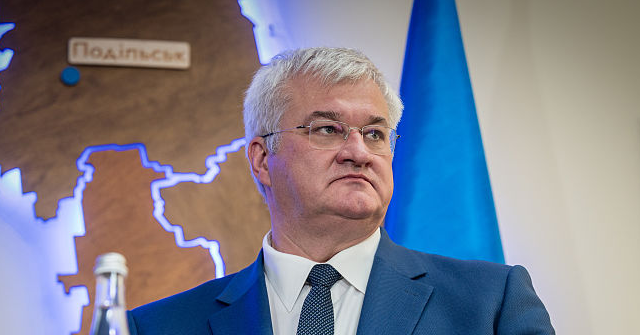The Ukrainian Foreign Ministry on Tuesday criticized the China-hosted Shanghai Cooperation Organization (SCO) summit for failing to criticize the Russian invasion. Russian President Vladimir Putin was an honored guest at the event.
“We consider it eloquent that the main final document of the summit, the 20-page Tianjin Declaration, does not contain a single mention of the Russian war against Ukraine,” the Ukrainian Foreign Ministry said in a statement.
“It is surprising that the largest war of aggression in Europe since World War II was not reflected in such an important, fundamental document, while it mentions a number of other wars, terrorist attacks, and events in the world,” the statement said.
None of that is actually surprising, since China used the SCO summit as a coming-out party for its new global axis of tyranny (or “Axis of Upheaval,” as it prefers to call itself) and Russia is a member in very good standing. China, like Russia, is a militaristic authoritarian state that is comfortable with using force to seize territory, although Beijing has thus far played a more careful game than Moscow.
“We are convinced that without a just end to Russian aggression against Ukraine, we cannot talk about sustainable global development, international peace and security, adherence to the principles of the U.N. Charter, or stable and equitable development of trade relations between the regions of the world,” the statement said, rattling off some of the nominal goals of the SCO bloc.
The Ukrainian Foreign Ministry looked for a silver lining by describing the SCO joint declaration as a “failure of Moscow’s diplomatic efforts,” because the SCO did not endorse the invasion of Ukraine, or line up behind Moscow’s demands for a ceasefire.
“The Kremlin has suffered another defeat in its efforts to present the world as divided in its assessments of Russia’s aggression against Ukraine and to impose the notion that states outside Europe and North America have a favorable view of Russia on the causes, consequences, and ways to end its war against Ukraine,” the Ukrainian statement said.
This sounded like wishful thinking, since the SCO happily gave Putin a platform to broadcast his twisted rationale for the invasion. Putin told the summit that the invasion was not actually a “Russian attack,” but rather a defensive response to a “coup” in Kyiv that was orchestrated by Western powers.
Putin’s remarks were standard Russian propaganda about the Euromaidan uprising, which deposed the corrupt Russia-aligned Ukrainian president Viktor Yanukovych in 2014.
The Ukrainian Foreign Ministry concluded by saying it would “welcome Beijing’s more active role in bringing peace to Ukraine.”
Ukrainian President Volodymyr Zelensky frequently urges China to use its influence with Russia to end the war. He repeated this call last week after devastating Russian missile and drone strikes on Kyiv.
“We expect a reaction from China to what is going on. China has repeatedly called for not expanding the war and for a ceasefire. Yet this is not happening because of Russia,” Zelensky complained last Thursday.
China ignored Zelensky’s pleas and repeated its boilerplate statements that all parties should avoid “escalation” while working for a “political resolution of the Ukraine crisis.” China studiously avoids describing the war as a Russian “invasion.”
Zelensky was so angered by China’s refusal to pressure Russia that he refused to accept Chinese personnel as part of any postwar peacekeeping force.
“We don’t need guarantors who don’t help Ukraine, and didn’t help Ukraine at the moment when we really needed it. We need security guarantees only from those countries that are ready to help us,” he said on August 22.
Kremlin foreign policy adviser Yury Ushakov said on the sidelines of the SCO summit that President Donald Trump’s claims of making progress toward arranging a trilateral summit between himself, Putin, and Zelensky are not accurate.
“Now they’re talking about a trilateral meeting, about a meeting between Putin and Zelenskyy. But specifically this — as far as I know — there was no agreement between Putin and Trump on it,” Ushakov said.
Read the full article here
